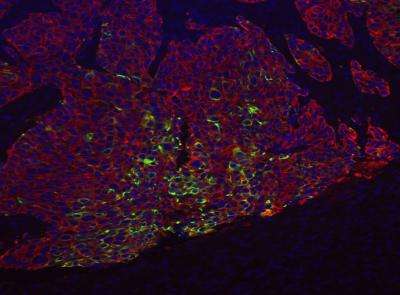Researchers discover biological diversity in triple-negative breast cancer

Triple-negative breast cancers are more biologically diverse than previously believed and classification should be expanded to reflect this heterogeneity, according to University of North Carolina researchers.
In a study published in the February issue of The Oncologist conducted by UNC and the Vall d'Hebron Institute of Oncology in Barcelona, Spain, a team lead by Charles Perou, PhD, of UNC Lineberger Comprehensive Cancer Center, examined more than 1,700 breast tumors, including 412 triple negative (TN) breast cancers, and concluded that triple-negative cancers, and basal-like breast cancers should not be considered as a single type, since more than 30 percent of triple-negative cancers lack biological markers associated with basal-like tumors.
Breast cancers are sometimes classified into four main subtypes – basal-like (often called TN), luminal A, luminal B and HER2-enriched. While targeted therapies have been developed to exploit the weaknesses of some types of breast cancers, the lack of these drug markers on TN cancers means patients with these tumors must undergo broader, more aggressive therapies.
"This is clinically very important, because TN breast cancers lack the three biomarkers used for guiding many therapies in breast cancer, so those patients do not have these therapeutic options. They are thus left with multi-agent chemotherapy as their treatment," said Dr. Perou.
The researchers found at least four disease subtypes within TN tumors, with more than 75 percent of the tumors falling into the basal-like subtype. Further research is needed to identify the distinct biomarkers shared by the expanded subtypes of TN cancers. The ultimate goal will be to target the individual biomarkers of these subtypes and create therapies that target their individual biology, according to Dr. Perou.
"Today, given that the Basal-like subtype is the majority of TN patients, I believe that if we are to make therapeutic progress against TN disease, we are going to need to target the unique biology of the Basal-like subtype" said Dr. Perou.















